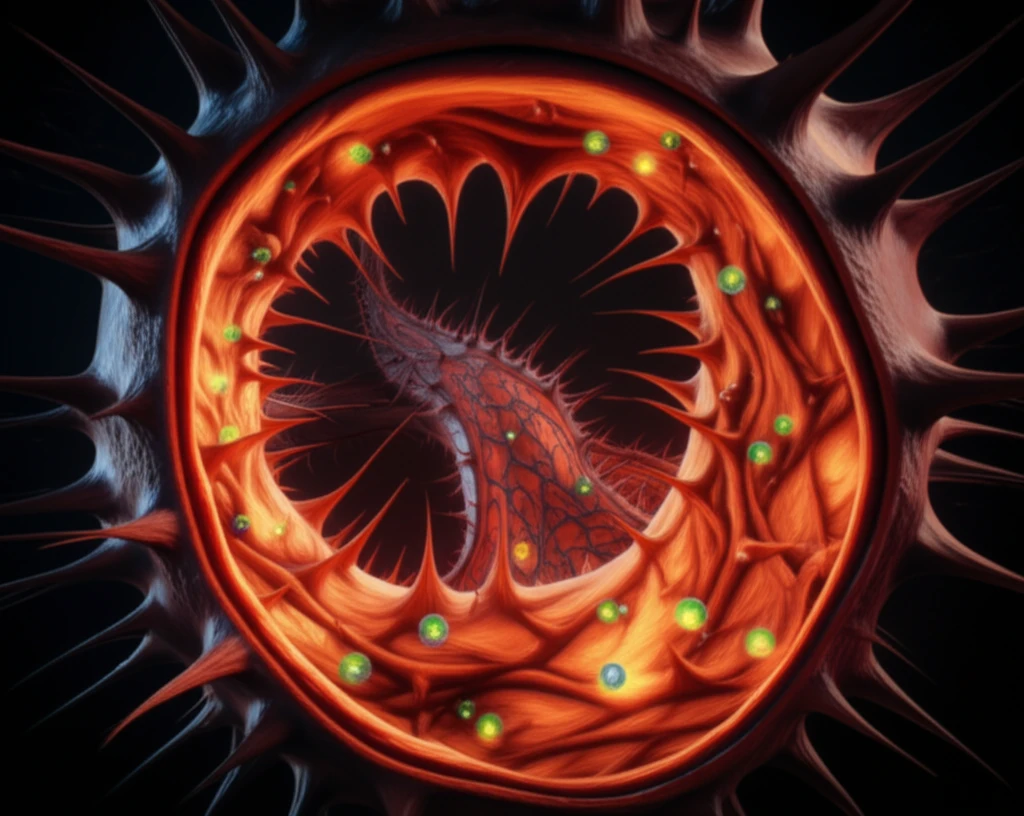
Inflammation's Silent Attack: How It Harms Your Heart Health and What You Can Do
"New research unveils how common immune responses can disrupt critical cardiovascular functions, especially in younger individuals, paving the way for preventive strategies."
In today's fast-paced world, inflammation has become a buzzword, often associated with visible issues like skin rashes or joint pain. However, its most insidious form is the one you can’t see – the chronic, low-grade inflammation that quietly damages your cardiovascular system. Recent studies have increasingly linked this type of inflammation to significant vascular dysfunction, setting the stage for heart problems down the road.
Think of your arteries as the highways of your body, vital for transporting blood and oxygen to every cell. When inflammation flares up, it's like a traffic jam on these highways, disrupting normal blood flow and putting extra strain on your heart. This is where a particular molecule called polyinosinic-polycytidylic acid, or poly (I:C) for short, comes into play. Poly (I:C) mimics viral infections in your body and can trigger immune responses that, while meant to protect you, can inadvertently harm your heart.
A groundbreaking new study has shed light on exactly how poly (I:C) disrupts crucial cardiovascular functions. The research uncovers a specific pathway through which this molecule interferes with nitric oxide (NO) signaling, a critical component of vascular relaxation. By understanding this mechanism, we can explore new ways to protect our hearts from the hidden dangers of inflammation.
How Does Viral Mimicry Disrupt Heart Health?

The recent study, led by Makoto Ando and colleagues, meticulously examined the impact of poly (I:C) on rat superior mesenteric arteries – vessels vital for intestinal blood supply and, by extension, overall cardiovascular health. The findings reveal that poly (I:C) impairs the arteries' ability to relax properly, a process normally facilitated by nitric oxide (NO). This impairment stems from poly (I:C)'s overexposure to NO via the NF-kappa B/iNOS pathway.
- Reduced Relaxation: Arteries treated with poly (I:C) showed a significantly diminished ability to relax compared to untreated arteries.
- NO Overexposure: Poly (I:C) led to an overproduction of NO, paradoxically hindering rather than helping vascular function.
- Pathway Activation: The NF-kappa B/iNOS pathway was identified as the key player in this detrimental process.
What's next
This study adds a critical piece to the puzzle of how immune responses and inflammation impact heart health, particularly in younger individuals. While more research is needed to fully understand the long-term implications and translate these findings into human treatments, the study offers a promising direction for preventive strategies. By recognizing the subtle ways inflammation can compromise vascular function, we can take proactive steps to safeguard our cardiovascular well-being and promote a healthier future.
